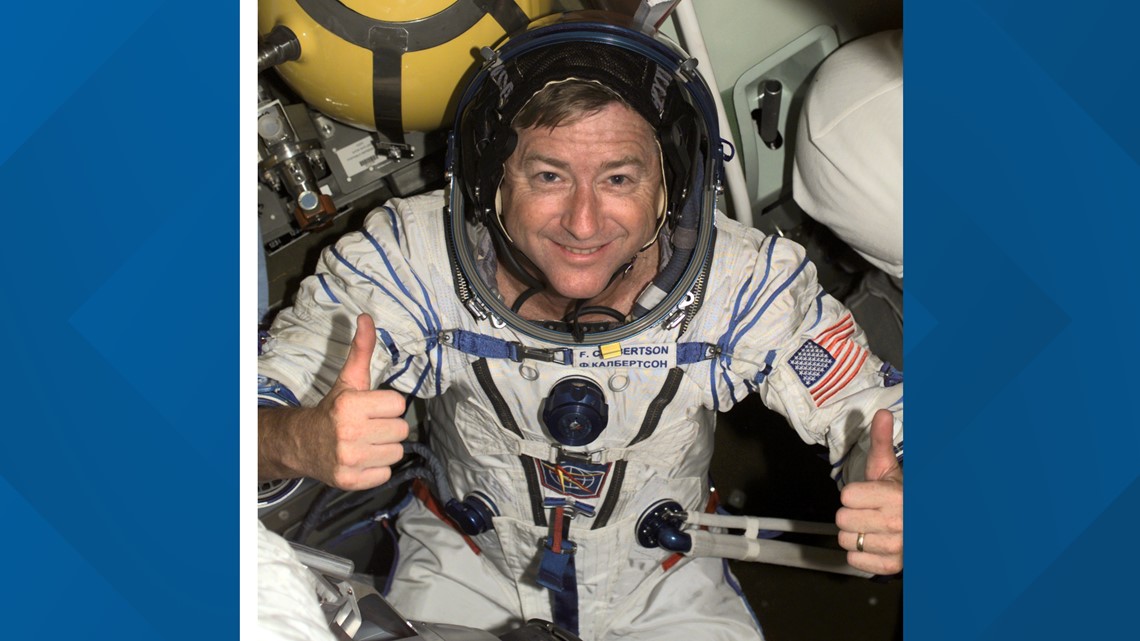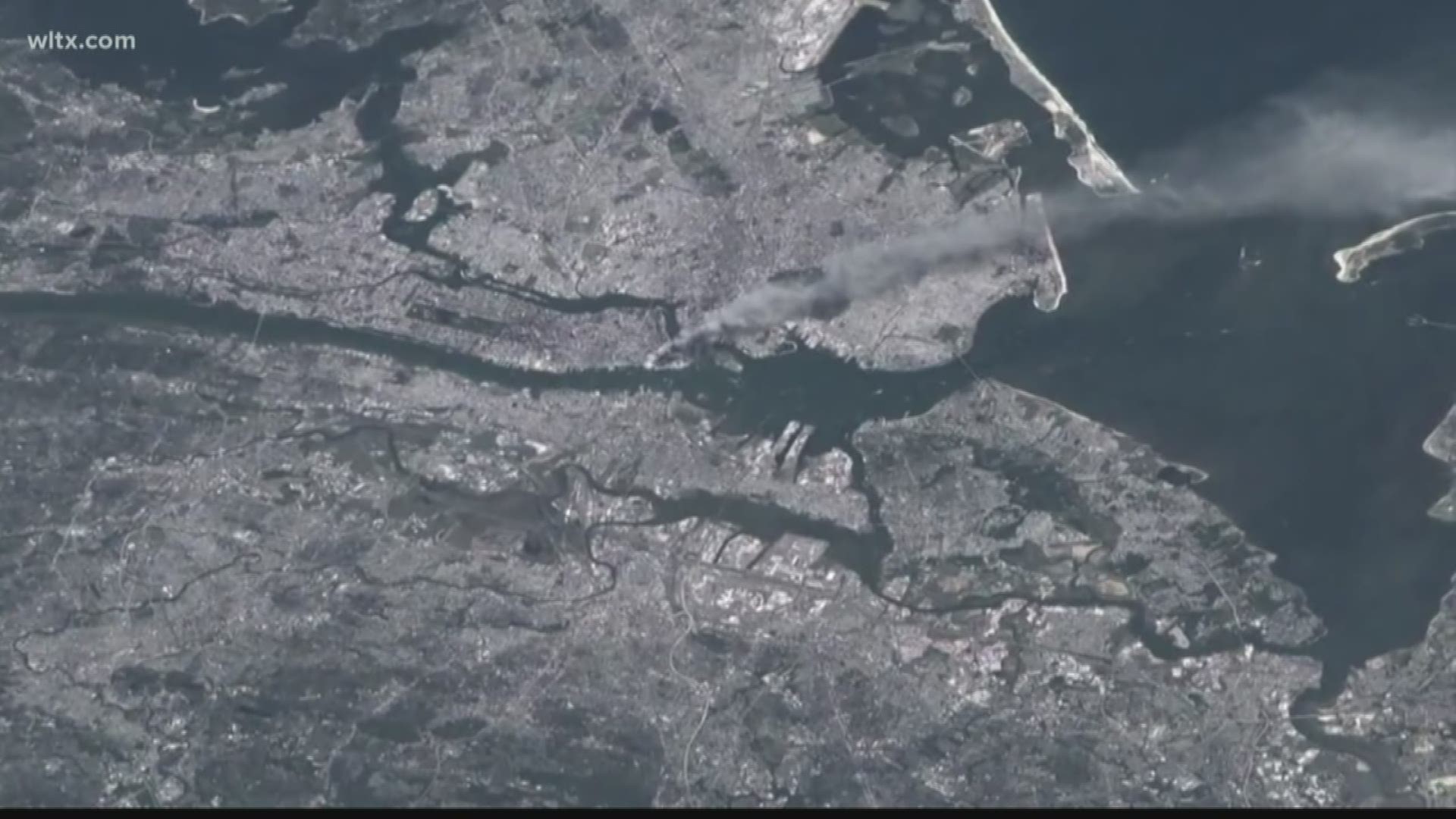September 11, 2001. He was the American who wasn't on earth when the towers fell.
Astronaut Frank Culbertson was in space, about 250 miles above earth, when he found out about the terrorist attack on September 11, 2001.
Frank Culbertson is from Charleston, South Carolina and he had one of the clearest views of the terrorist attacks on September 11, 2001.
On September 12, 2001 at 19:34 hours, he writes this.
"Well, obviously the world changed today. What I say or do is very minor compared to the significance of what happened to our country today when it was attacked by .... by whom? Terrorists is all we know, I guess. Hard to know at whom to direct our anger and fear..."
Culbertson has been on three missions to space.
In an interview for the Kennedy Space Center in 2014, he tells his story.
His third mission was on board the International Space Station, and he had two other crew mates, both Russian. They were supposed to launch in July of 2001, but ended up launching in August. He had been in space for 30 days when he, as the crew medical officer and commander, called NASA to update them on the crew's physical examinations.
It was September 11 when he called in, and was relayed information about what was happening in New York and in Pennsylvania. They didn't have live TV or internet, so he and his crewmates knew little about what was happening.
When Culbertson checked where on the map he was, he saw that he was coming up over Canada. He told the ground crew to hold on and grabbed a video camera.
About 400 miles away from New York City, he saw, in perfect weather, the chaos. A gray blob, smoke over Manhattan. He didn't know what was happening, but he knew it was bad.
Later he found out he had watched the second tower fall.
Ironically he says, he was in the middle of a Tom Clancy novel about terrorist attacks.
He writes this in one of his letters.
"I was flabbergasted, then horrified. My first thought was that this wasn't a real conversation, that I was still listening to one of my Tom Clancy tapes. It just didn't seem possible on this scale in our country. I couldn't even imagine the particulars, even before the news of further destruction began coming in. "
Traveling five miles a second, New York quickly disappeared. Culbertson said he knew what they had to do before they did another pass over the United States in 90 minutes.
They set up every camera they could and took pictures of everything they could see, looking for any evidence of any other attacks. Soon they were over Washington, directly over the pentagon, and Culbertson said he could see the "gash in the side of it," the smoke, the rescue vehicles.
He ends one of his letters with this, "Other than the emotional impact of our country being attacked and thousands of our citizens and maybe some friends being killed, the most overwhelming feeling being where I am is one of isolation."


Every orbit, the crew tried to see more of what was happening. Although they were able to monitor what was going on, they knew little about it. They had moved Houston mission control to an undisclosed location so they were mainly in contact with Moscow.
The next day, Culbertson was able to speak with NASA again on an encrypted loop. He was told that an old classmate of his from the Naval Academy was the captain of the flight that flew into the Pentagon. Charles "Chic" Burlingame was the pilot of American Airlines Flight 77, the flight that hit the Pentagon.
The attack was personal for Culbertson.
He sent a message down to classmates and family, and played his trumpet as tribute.
In a letter from the September 13, 2001, Culbertson says:
"It's difficult to describe how it feels to be the only American completely off the planet at a time such as this. The feeling that I should be there with all of you, dealing with this, helping in some way, is overwhelming. I know that we are on the threshold (or beyond) of a terrible shift in the history of the world. Many things will never be the same again after September 11, 2001. Not just for the thousands and thousands of people directly affected by these horrendous acts of terrorism, but probably for all of us. We will find ourselves feeling differently about dozens of things, including probably space exploration, unfortunately.
It's horrible to see smoke pouring from wounds in your own country from such a fantastic vantage point. The dichotomy of being on a spacecraft dedicated to improving life on the earth and watching life being destroyed by such willful, terrible acts is jolting to the psyche, no matter who you are. And the knowledge that everything will be different than when we launched by the time we land is a little disconcerting. I have confidence in our country and in our leadership that we will do everything possible to better defend her and our families, and to bring justice for what has been done. I have confidence that the good people at NASA will do everything necessary to continue our mission safely and return us safely at the right time. And I miss all of you very much. I can't be there with you in person, and we have a long way to go to complete our mission, but be certain that my heart is with you, and know you are in my prayers."
He ended his letter that day "Humbly, Frank."
About four weeks later, looking over Afghanistan, Culbertson says he flashes of light, he saw the combat begin from space.
To read his letters from space, click here.

